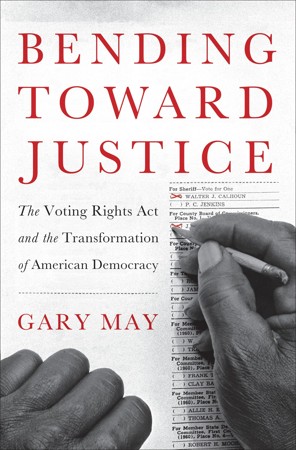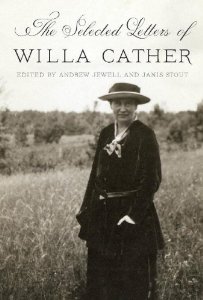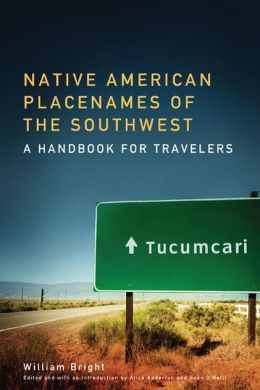-

Bending Toward Justice: The Voting Rights Act and the Transformation of American Democracy
by Gary May

The Nutshell:
University of Delaware historian May chronicles the civil rights struggles—including the assassinations of Medgar Evers and Martin Luther King Jr.—and political maneuverings that gave birth, eventually, to the Voting Rights Act of 1965.
Literary Lovechild Of:
Taylor Branch’s Parting the Waters: America in the King Years 1954-63 and Alexander Keyssar’s The Right to Vote: The Contested History of Democracy in the United States.
You'll Find It On Your Bookshelf If:
You’re interested in better understanding the Voting Rights Act before we go about dismantling it.
Cocktail Party Fodder:
Before the Voting Rights Act, the total percentage of blacks registered to vote in Alabama, Louisiana, and Mississippi was between 2 and 10 percent, while the percentage of whites was between 65 and 100 percent.
For Optimal Benefit:
Watch with this film of the 1965 Selma to Montgomery march for voting rights. Then consider being among the 16 percent of Angelenos who show up for local elections.
Snap Judgment:
May’s compelling narrative history brings individual experiences to life without losing sight of the bigger arc of a nation.
-

The Selected Letters of Willa Cather
edited by Andrew Jewell and Janis Stout

The Nutshell:
Willa Cather directed in her will that her letters should never be published, but most of her correspondents preserved them anyway—and, over 65 years after Cather’s death, University of Nebraska archivist Jewell and Cather biographer Stout have published 20 percent of her epistolary output.
Literary Lovechild Of:
Edith Lewis’s Willa Cather Living: A Personal Record and James Woodress’s Willa Cather: A Literary Life.
You'll Find It On Your Bookshelf If:
You have read Alexander’s Bridge (Cather’s first novel), Sapphira and the Slave Girl (her last novel), and the novels in between. And the poetry. And the short stories. In short, you need a fix.
Cocktail Party Fodder:
F. Scott Fitzgerald wrote Willa Cather a letter in 1925 for fear he’d plagiarized from her in an early section of The Great Gatsby. She assured him that was not the case: “So many people have tried to say that same thing before either you or I tried it, and nobody has said it yet.”
For Optimal Benefit:
Toss on a calico dress and bonnet while reading. (Men too.)
Snap Judgment:
Cather is revealed as funny, passionate, and judgmental, and it’s great fun to experience her journey from Nebraska homestead to New York City in what adds up to a surprisingly thorough autobiography.
-

Native American Placenames of the Southwest: A Handbook for Travelers
by William Bright

The Nutshell:
Before his death, late UCLA linguist Bright compiled an almanac explaining the pronunciation, provenance (known or potential), and meaning of the names of towns, monuments, and landmarks (natural and manmade) with Native American roots in four southwestern states.
Literary Lovechild Of:
Marianne Mithun’s The Languages of Native North America and historical atlases of Oklahoma, Texas, New Mexico, and Arizona.
You'll Find It On Your Bookshelf If:
You’ve always wanted to speak fluent Comanche, but your school only offered Cherokee, so you settled for that. After your hunger strike.
Cocktail Party Fodder:
Miami, the town in Oklahoma, is pronounced mie-AM-uh—unlike the Florida city (mie-AM-ee).
For Optimal Benefit:
Who needs to play “I’m packing my suitcase” on your next road trip when the holder of this book can provide fellow passengers with nonstop, fact-based entertainment?
Snap Judgment:
You have to be a real language geek to get into this, but if you are—and if you live in the Southwest—you’ll have a field day.



